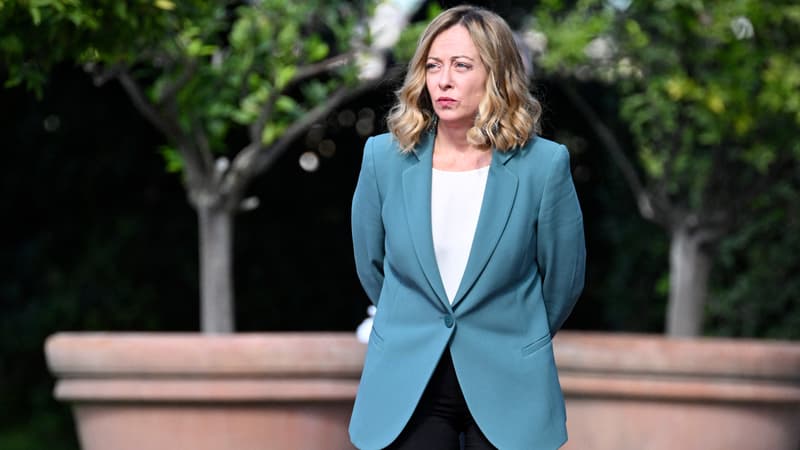An agreement almost nipped in the bud and a snub for the Italian government. Twelve migrants housed in an asylum seeker center in Albania under a controversial agreement with Rome were returned to Italy this Saturday, October 19, after an Italian court invalidated their detention.
Sixteen men from Bangladesh and Egypt arrived at the Albanian port of Shengjin this Wednesday, initiating a protocol that provides for the creation of two centers in Albania, from where migrants rescued in the Mediterranean will be able to apply for asylum.
Legal debate around “safe” countries
The agreement only refers to men, who are in good health and come from so-called “safe” countries, that is, those that offer guarantees in terms of democracy and human rights, and therefore whose nationals are potentially deportable.
However, shortly after their arrival, four of them were identified as “vulnerable” (two claimed to be minors and two others needed medical treatment) and were returned to Italy.
As for the other 12, the Italian judges of the immigration affairs section of the Rome court also invalidated their detention. This time invoking a recent ruling by the European Court of Justice, which stipulates that Member States can only designate entire countries as “safe”, and not certain regions of these countries, as Italy has done.
The decision was welcomed by the Italian left. “We said it, not because we have a crystal ball, but because we read the laws,” Elly Schlein, head of the main opposition party, the Democratic Party (PD, center-left), reacted in the columns of La Repubblica, while MEP Irene Tinagli scoffed at a “predicted failure.”
A decree in preparation
“I don’t think it’s up to judges to say which countries are safe, but to the government,” Giorgia Meloni criticized before the press on Friday.
“I regret that while all of Europe looks with interest at something that Italy does, as always they try to put obstacles in our way,” added the leader, whose country is on the front line of the arrival of immigrants crossing the Mediterranean from the North African coasts.
His government, which combines right and extreme right, will meet this Monday, October 21, in the Council of Ministers to adopt a decree aimed at overcoming this legal obstacle by including in the law a list of 22 countries considered “safe” by Italy.
Meloni scrutinized on the European scene
The invalidation of immigration detention in Albania had a strong European echo, while the agreement between Rome and Tirana, unprecedented in the EU, was closely examined by leaders who considered themselves inspired by it.
European Commission President Ursula von der Leyen said last week that she was willing to “learn lessons” from the Italian “experience” in a letter sent to member states.
In France, Michel Barnier’s government “does not refrain” from sending immigrants to a country outside the European Union (EU) to process their asylum application, although President Emmanuel Macron is “skeptical” about it.
In the United Kingdom, Labor Prime Minister Keir Starmer, facing an influx of migrants crossing the English Channel, praised Italy’s “remarkable progress” in mid-September in the fight against illegal immigration.
Electoral promise
Giorgia Meloni, elected in 2022, had promised to stop migrant arrivals, accelerate repatriations and force her European neighbors to help the peninsula more.
The government has already run into the law when it wanted to oppose the rescue of migrants at sea by NGOs. Tension increased on Sunday when Giorgia Meloni released excerpts of a prosecutor’s letter to an association of magistrates on social media. He warns against Meloni, “stronger and more dangerous” than former Prime Minister Silvio Berlusconi.
“It must be remedied,” says Judge Marco Patarnello in this internal letter revealed by Il Tempo, proof according to Giorgia Meloni that the judges act against their government.
The Italian opposition denounced the truncated publication of this extract and highlighted that Giorgia Meloni had not published the rest of the text, where the judge adds: “We must not form a political opposition, but we must defend the courts and the right of citizens to independent justice .
Source: BFM TV


